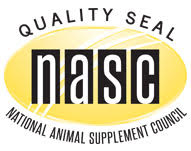Pet adoption is a major life decision that can affect your finances, your daily routines and the way you spend your free time. Before you take the plunge, give thought to these important issues that require consideration. Making plans in advance will help ensure that your pet’s transition to your household is a positive experience for everyone.
Cost
For many people, pets represent a significant expense. Some of these expenses are one time only, or only occasional expenses, like a collar, leash and toys. Other expenses are ongoing, like food and veterinary care. Vaccinations, spaying and neutering, wellness exams, dental exams and other medical needs can all have an impact on your pocket book. If you’re concerned about the expense of owning a pet, research costs like veterinary care and food. Call a local veterinarian and check out food costs at your local grocery store.
Care Duties
Pets need to be exercised, groomed and their living quarters need regular cleaning, but some pets require more care than others. Research pet care needs for different types of pets before initiating an adoption. This will ensure that you’ll have enough time to meet your pet’s needs without adding undue stress to you and other members of your household.
Divide the care duties up among members of your household. Everyone in your family should agree to their role in the care and feeding of your pet. Make list of different chores and caregiving activities that will need to happen on each day, and then assign a member of your household to each chore or activity to ensure that all your pet’s needs will be addressed at all times.
Pet Size
As a general rule of thumb, the larger the pet, the more space he or she will need. To ensure that your pet is happy, choose a pet that will fit in your living quarters. In general, cats and small dogs are more suitable for apartments and small houses with small yards. Larger dogs are more suitable for homes with a big yard.
Age of Pet
The age of a pet can influence its behavior and needs. Young pets have a lot of energy and require a lot of training. Older pets tend to be more laid back, less energetic and need minimal training. When considering pet adoption, decide which pet age is right for your needs. To ensure that you and your pet are happy, choose a pet that matches your energy level and the amount of time you have to devote to your pet.
House Rules
Before your pet arrives, establish rules for your household. Will there be rooms where your pet is not allowed to go? Will your pet be allowed on the furniture? Will your pet live inside or outside? Sorting out these details in advance can prevent confusion when your finally arrives.
Scheduling
Sometimes fitting a pet into your schedule can be a challenge. For example, dogs, particularly puppies, need to be let out periodically throughout the day to “do business.” If you work full time, you may not be around to meet the needs of a puppy. Making plans in advance will help ensure that you can meet your pet’s needs, regardless of your schedule.
The NASC Quality Seal
The goal of the National Animal Supplement Council (NASC) is to promote the health and well-being of companion animals and horses that are given animal health supplements by their owners, and to protect and enhance the integrity of the animal health product industry. When you see the NASC Quality Seal on animal health supplements, you can trust you are buying from a reputable company that has successfully completed an independent quality audit and has complied with rigorous requirements necessary to gain permission to display the Quality Seal. To learn more, and to access meaningful information on all aspects of health and wellness for dogs, cats and horses, visit AnimalHealthLive.com.


